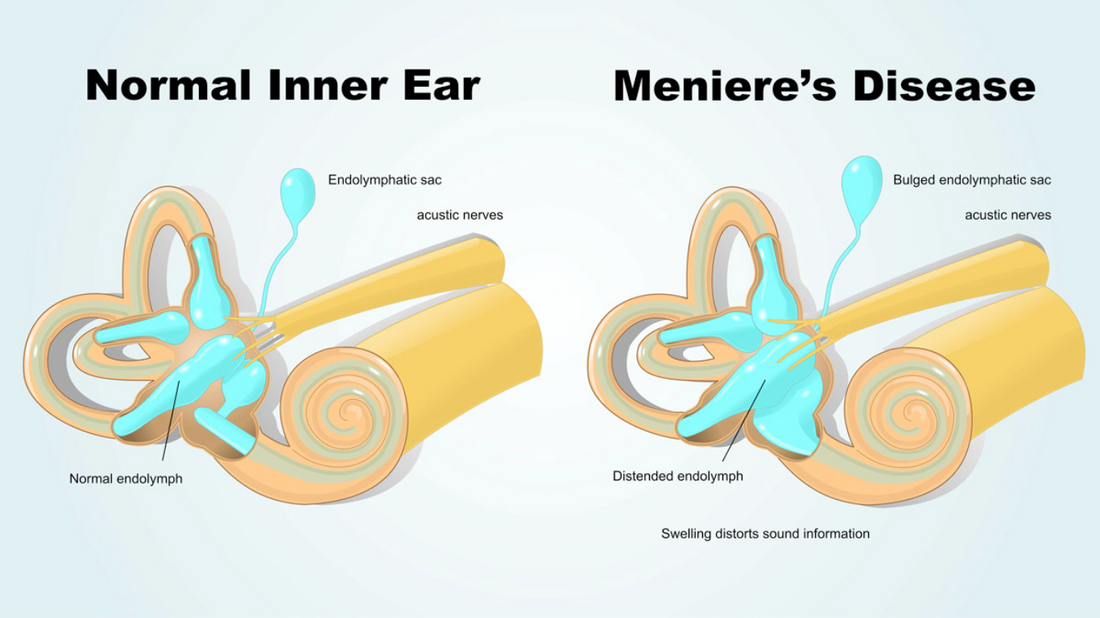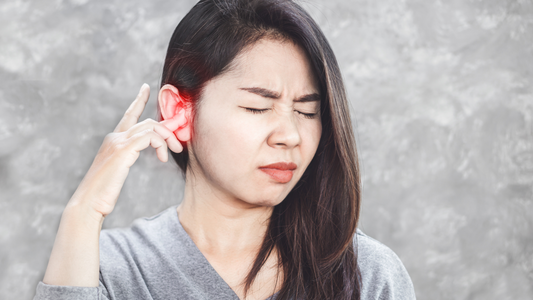Ever been chatting with a friend and suddenly your ear starts to ring, or you feel like you're on a boat rocking back and forth? For some of us, that moment passes quickly; but for others, it sticks around, making every day a little harder. That's the reality for people living with Meniere's Disease, a condition you might have heard more about recently. Folks like musicians Huey Lewis and Ryan Adams have shared their struggles, showing just how this sneaky health issue can make a big splash in someone's life.
What's it like when your world spins out of control and sounds get all mixed up? That's Meniere's Disease for you, and it's more than just a moment of dizziness or a quick ring in the ears. It sticks around and asks for attention. You might be wondering, "Why does this happen?" or "Can it be stopped?" Well, let's dive into what Meniere's Disease does to a person, how it shakes things up, and what options are out there to keep the balance. Ready? Let's get started!
Exploring Meniere’s Disease Impact on Overall Health
You’re walking in the neighborhood, and out of nowhere, your balance is off, and sounds become jumbled. That’s what it can feel like for someone with Meniere’s Disease. It strikes the inner ear, causing vertigo and a persistent ringing known as tinnitus. Picture an overfilled inner ear – it's like a balloon that can't take any more air – eventually, something’s got to give.
For folks with Meniere's Disease, their crucial inner ear functions go haywire. Symptoms turn easy tasks into uphill battles. Imagine you're suddenly spinning or everything around you is – that’s the vertigo. And then your hearing dims or ears feel plugged, making it tough to follow a conversation.
The real kicker? These symptoms muddle through daily life and can shake your emotional state. These sporadic episodes are hard to predict, leaving you on edge, wondering when the next wave of discomfort will hit, and hampering your ability to just live life.
What Causes Meniere’s Disease?
Finding out what sparks Meniere's Disease can be baffling. Experts suggest it might be due to issues with inner ear fluid. Normally, this fluid helps us stay upright and hear things properly. If something goes awry and the fluid swirls too much, it can falsely signal our brain that we're in motion. This can mess with our balance and hearing.
Several factors could wreak havoc on this fluid balance. Some suspect that viruses or allergic reactions play a part. In other scenarios, it might be our immune system mistakenly targeting our own body. Then there are those who deal with severe headaches that disrupt inner ear equilibrium. No clear culprit has been identified, but it's a bit like having a jigsaw where the pieces don't quite fit, causing a stir inside our ears.
How Can Meniere's Disease Cause Tinnitus?
Meniere's Disease takes a toll on the inner ear and those tiny hairs that are key for our hearing. Imagine these hairs are struggling to keep up in an inner ear that's off balance. The result? Some hairs give out; others snap. This creates chaos in how sound is relayed to our brains. The signals go haywire, and our brain receives this jumbled noise, interpreting it as persistent ringing or buzzing known as tinnitus. It's like a broken record playing in your head that you can't turn off—a constant distraction.
Understanding the Severity of Meniere’s Disease-Related Tinnitus

Have you ever dealt with a noise that just won't quit? Like a leaky faucet at night that keeps you up? That constant annoyance is a taste of what tinnitus can be like for folks with Meniere’s Disease. For some, the ringing in the ears is a quiet background noise, but for others, it's an all-consuming blare, making sleep and focus tough. Everyone experiences this noise differently – think of it as wearing earphones you can’t take off, blasting static at various volumes around the clock. And for many, it's like feeling a sound so intensely, it seems to shake their entire world. The hard truth is that tinnitus can calm down at times but often returns just as fiercely and suddenly. Plus, for some individuals, this relentless noise takes center stage, dwarfing even the vertigo that comes with the disease, turning into their primary concern. Discussing the 'bad' in Meniere’s-related tinnitus means acknowledging a sound that can truly push a person’s limits.
What Are My Options For Treatment?
If your ears are ringing nonstop and you've been told it's Meniere's Disease, you're probably looking for some relief. Your doctor might start with diuretics—these are medications that help your body get rid of unnecessary fluid. Another simple but effective step is cutting back on salt, since too much can cause your body to retain water, which isn't good for Meniere's. Reducing salty foods isn't always easy, but it can quiet down that persistent ringing. In severe cases, there might be discussions about surgery to address the problem. It's crucial to consult an expert, an ear doctor, to get the full lay of the land. They're the ones who can guide you through the options. And for those worried about cost, it's good to know that there are hearing aids available that are affordable. Don't let that ringing take over your life.
Wrapping It Up: Facing Meniere's Disease Together
So, now we've taken a closer look at Meniere’s Disease, right? It's not just a funny feeling in your ears—it turns everyday things into real challenges, from walking to chatting with friends. There's no magic trick to make it vanish, but there are ways to manage it. Meniere's can be tough, but hey, remember you're not alone on this bumpy ride. If you're dealing with a lot of noise in your ears, it might be the time to consider trying a hearing aid like the ones from HearWell Group. They could make all the difference. After all, life's too short to miss out on your favorite tunes or a good chat with an old friend, don't you think?
Sources & References
- Baguley, D., McFerran, D., & Hall, D. (2013). Tinnitus. The Lancet, 382(9904), 1600-1607. https://doi.org/10.1016/S0140-6736(13)60142-7
- Schwartz, S. R., Magit, A. E., Rosenfeld, R. M., Ballachanda, B. B., Hackell, J. M., Krouse, H. J., Lawlor, C. M., Lin, K., Parham, K., Stutz, D. R., Walsh, S., Woodson, E. A., Yanagisawa, K., & Cunningham, E. R. (2017). Clinical Practice Guideline (Update): Earwax (Cerumen Impaction). Otolaryngology–Head and Neck Surgery, 156(1_suppl), S1-S29. https://doi.org/10.1177/0194599816671491
- Palumbo, D. B., Alsalman, O., De Ridder, D., Song, J. J., & Vanneste, S. (2018). Misophonia and Potential Underlying Mechanisms: A Perspective. Frontiers in Psychology, 9, 953. https://www.frontiersin.org/articles/10.3389/fpsyg.2018.00953/full
- Paulin, J., Andersson, L., & Nordin, S. (2016). Characteristics of hyperacusis in the general population. Noise & Health, 18(83), 178-184. https://www.ncbi.nlm.nih.gov/pmc/articles/PMC5187672/
- Aazh, H., & Moore, B. C. J. (2017). Factors related to uncomfortable loudness levels for patients seen in a tinnitus and hyperacusis clinic. International Journal of Audiology, 56(10), 793-800. https://www.tandfonline.com/doi/full/10.1080/14992027.2017.1335888
- Aazh, H., Landgrebe, M., Danesh, A. A., & Moore, B. C. J. (2019). Cognitive Behavioral Therapy For Alleviating The Distress Caused By Tinnitus, Hyperacusis And Misophonia: Current Perspectives. Psychology Research and Behavior Management, 12, 991-1002. https://www.ncbi.nlm.nih.gov/pmc/articles/PMC6839011/

The Hear Well Group Research Team: Trusted Hearing Health Insights
Our experienced research team compiles hearing health data from credible, peer-reviewed sources and presents it in easy-to-understand terminology. We ensure accuracy and trustworthiness, providing up-to-date, evidence-based recommendations to enhance hearing care practices and inform our readers' hearing well-being decisions.


